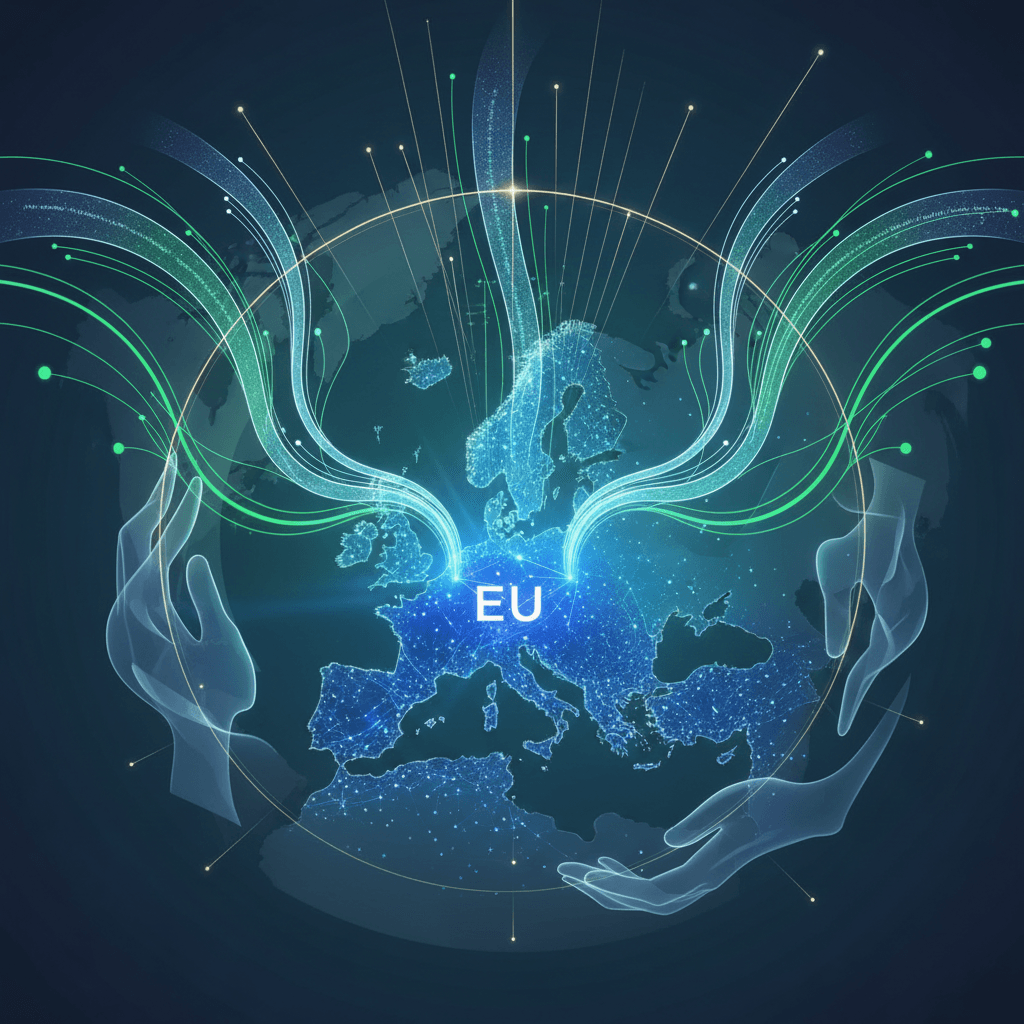EU Poised to Set Global AI Standard: Rights Fuel Innovation, Not Hinder
The EU aims to define global AI, proving trust and democratic values are catalysts for, not barriers to, innovation.
September 4, 2025

The European Union stands at a pivotal juncture, uniquely positioned to define the global approach to artificial intelligence and data governance. According to the Open Data Institute (ODI), the opportunity lies in demonstrating that robust protection of individual rights can serve as a cornerstone for, rather than a barrier to, technological innovation. Resham Kotecha, Global Head of Policy at the ODI, argues that by embedding democratic values into its digital framework, the EU can champion a model of AI development that is both economically competitive and fundamentally centered on people. This vision challenges the prevailing narrative that progress in AI necessitates a trade-off with personal freedoms and privacy, proposing instead a symbiotic relationship where trust fuels progress. The success of this approach, as outlined in the ODI's European Data and AI Policy Manifesto, could establish a powerful global benchmark, influencing how nations worldwide navigate the complexities of the digital age.
At the core of the ODI's recommendations is the principle that innovation and competitiveness must be built upon a foundation of regulation that safeguards people and strengthens public trust.[1] This requires a future-proof legislative and regulatory regime that prioritizes both societal well-being and economic dynamism.[2][3] The institute's manifesto, designed to guide policymakers through complex reforms like the staged introduction of the EU AI Act, calls for a joined-up approach where rights, trust, and innovation are mutually supportive.[4][5] Kotecha emphasizes that the EU has a unique chance to shape a global standard for digital governance that puts people first.[1] This stands in contrast to the fragmented regulatory landscape in the United States and the state-driven models in China that have raised concerns about surveillance and human rights.[1] By establishing clear and principled rules for responsible AI, the EU could leverage its regulatory framework as a form of soft power, exporting a governance model that other nations might choose to adopt.[1] This would position Europe not just as a rule-maker, but as a global standard-setter for trustworthy technological advancement.[1]
A crucial element in achieving this vision is the establishment of a strong and trustworthy data infrastructure, treating data governance with the same importance as physical infrastructure.[6][7] The ODI's manifesto advocates for this as its primary principle, highlighting the need for a framework that ensures interoperability and supports AI development while protecting citizens' rights.[2][3] Initiatives such as the Common European Data Spaces and Gaia-X are pointed to as foundational examples of this approach, aiming to create shared systems where governments, businesses, and researchers can pool and utilize data without compromising control or security.[1][3] The consistent implementation of the Data Governance Act across member states is cited as a critical test of this strategy.[1] Furthermore, the manifesto underscores the importance of open data as a foundational layer of a resilient data ecosystem, arguing it provides the most solid base for AI development.[4] The ODI encourages the European Commission and the European AI Office to explore methods like regulatory sandboxes and incentives to expand access to high-quality data for AI training, ensuring a diverse and competitive market for new technologies.[4]
To build a data ecosystem that is truly people-centric, the ODI stresses the need for trust, inclusivity, and widespread data literacy.[2][6] Trust is cultivated not only through strong regulations but also through the active involvement of independent organizations that provide necessary checks and balances and ensure accountability.[1][4] This includes fostering public participation and ensuring diverse civil society voices are included in data and AI decision-making processes.[3] The manifesto also highlights the critical importance of creating a diverse, equitable, and inclusive data ecosystem to limit bias, inequality, and power imbalances.[2][7] This is particularly vital when developing AI applications in high-impact areas like climate change, misinformation, and public health.[2] A key part of this is supporting small and medium-sized enterprises (SMEs) and startups, which are often excluded from access to large datasets, through initiatives like the AI Factories and their associated Data Labs.[2] Finally, the ODI calls for an investment in data knowledge and skills across the populace, empowering citizens to have a greater say in how their data is used and to participate meaningfully in the digital economy.[7][4]
In conclusion, the Open Data Institute, through the voice of Resham Kotecha and its detailed policy recommendations, presents a clear and ambitious roadmap for the European Union. The central thesis is that the EU can and should lead the world in creating an AI and data environment where democratic values and economic growth are not competing forces but are instead deeply intertwined.[2][4] By building a robust data infrastructure, championing open data, fostering a culture of trust and inclusivity, and empowering its citizens with data skills, the EU has the opportunity to pioneer a distinctly European model of AI development.[3][8] This approach, which balances innovation with responsibility and technological advancement with an unwavering respect for human rights, could serve as a global blueprint for a more equitable and trustworthy digital future.[3][8] The real test, as Kotecha notes, will be in the consistent and aligned implementation of these principles across all member states.[1]